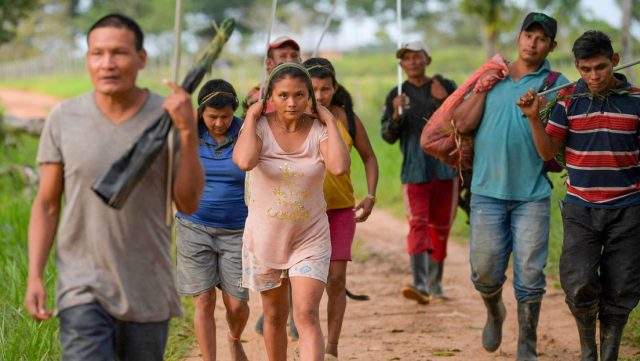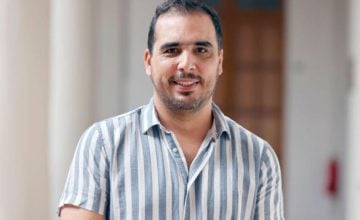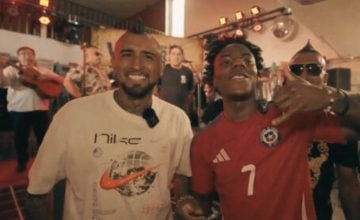The old wound of sexual abuse against Colombian indigenous women has been reopened in Colombia with reports of rape against girls and adolescents from two ethnic communities in Guaviare, one of the departments where the armed conflict has left indelible marks.
Faced with this accusation, which involves members of the Colombian Army and a US soldier, the president of Colombia, Gustavo Petro, asked last Friday that an investigation be opened immediately. So far, the Attorney General’s Office and the Public Ministry have responded.
Meanwhile, John Rhatigan, press attaché and spokesman for the US Embassy in Bogotá, told W Radio that they were unaware of any investigation.
The sexual abuses have been mainly against minors and women from the indigenous communities of Nukak and Jiw, located in the Colombian Amazon. However, this is not a new issue because for at least five years the victims have warned about the rapes and forced prostitution they suffer in their territories by soldiers, armed organizations and «settlers».Investigations in Colombia
Following this presidential warrant, the Attorney General, Francisco Barbosa, reported in an institutional video that there are 378 cases of sexual abuse – collected by the Colombian Institute for Family Welfare (ICBF) – against members of the indigenous communities of Guaviare between 2018 and 2020. He indicated that now, it has to check if each one was sent to the Prosecutor’s Office and establish if there was an omission or «void». If the omission or «void’ is confirmed, this would imply the initiation of criminal proceedings against those responsible.
Barbosa denied that any US military was linked to the abuse of a minor, to whom they would have offered food and then raped in 2019, according to the complaint that appears in the report by journalist Gerardo Reyes for Univision, whose dissemination caused a commotion and the start of these investigations.
The head of the Prosecutor’s Office indicated that «urgent actions with prosecutors and investigators dedicated exclusively to dealing with this type of crime» will be strengthened in San José del Guaviare.
For its part, the Guaviare Regional Attorney announced in a press release that it had opened a «disciplinary investigation» against the regional director of the ICBF in that entity, Joaquín Mendieta Silguero, because «apparently, he knew of the sexual abuse against minors of the indigenous peoples and despite this, he did not deploy the necessary protection measures”.
This decision was made after the statements of the ICBF department head were disseminated in a Univision report. In the registry, Mendieta Silguero says he is aware of the cases of sexual abuse, but affirms that «at this moment they are not so worrisome».
In addition to this process that is beginning, the Delegate Disciplinary Prosecutor for Instruction for the Public Force began a preliminary investigation against the military, «which seeks to identify other acts of abuse or sexual violence against indigenous girls from Guaviare», between 2019 and 2023.
To this end, the General Inspectorate of the Army and the Jungle Infantry Battalion No. 18 ‘José Joaquín París’ were asked to provide information regarding «complaints against soldiers for this type of conduct» or on disciplinary investigations in this regard, in the last four years.An open wound in Colombia
The Nukak are a nomadic ethnic group that barely had contact with non-indigenous peoples in 1988, reports a video made by the Truth Commission. At that time, its members, who have been decimated by 60%, according to the UN, did not know that there was a long-standing armed conflict in their country. It would take a few years for them to also be among their victims.
In the video, a female voice affirms that women have been raped and prostituted due to State abandonment and lack of opportunities, characteristic of rural Colombian areas.
In the most remote parts of the country, ethnic communities have been left at the mercy of armed groups, criminal organizations and companies that exploit natural resources, which has caused their displacement, decline, forced recruitment and their involvement in illegal activities.
As part of this historical debt, the Nunak people, made up of ‘The last green nomads’, were incorporated into the ethnic chapter of the peace agreement signed between the Government and the extinct Revolutionary Armed Forces of Colombia (FARC), in 2016.
Complaint and report on violations
In 2018, a group of Nukak women dared to take the first step to make public the cases of sexual violence they had suffered. These stories were known during their participation in the Symbolic Court against the Patriarchy, in Bogotá.
After this start, each experience began to be systematized and, after two years of work, a report was delivered to the Truth Commission in San José del Guaviare.
In the document, there are more than 20 testimonies that reflect the systematic violence that has existed against girls and adolescents, as a form of territorial dispossession.
“They violate us almost daily. Soldiers, guerrillas, paramilitaries, police and ‘settlers’: they have all done it at some point. Many of us cannot find a way out of this situation and even think about taking our own lives”, says one of the women who testified before the Truth Commission.
For commissioner Patricia Tobón Yagarí, the women of this indigenous group «have even been stripped of their own bodies and their autonomy», in the midst of the dynamics of violence in the armed conflict.Prostitution to survive
The Office of the UN High Commissioner for Human Rights classifies the Nukak as «the most vulnerable» in the world, given the rapid extinction of their population in just three decades.
The text ‘Times of life and death. Memories and struggles of indigenous peoples in Colombia’, prepared by the Center for Historical Memory, talks about the forced prostitution of some women of that ethnic group «pressed by the need to survive».
«The same guys who fall in love with one threatened us because they wanted to have forced sex», says ‘Rocío’, a Nukak woman who was abused at age 11, published Pacifista.
Kelly Peña, from the feminist organization Confluencia de Mujeres para la Acción Pública (Women’s Confluence for Public Action), assures that the female bodies became the ‘spoils of war’. «The Nukak, like other indigenous women in the Amazon, can be bought so as to take them to work or have sex».
Among the common practices of aggressors against their victims is providing them with alcoholic beverages or chemical substances to commit the abuse. In the same way, there are kidnappings, sexual enslavement, forced labor and money or food is offered in exchange for sexual encounters, according to various testimonies collected by the Truth Commission.Open investigations
In the Prosecutor’s Office there are twelve open processes for sexual violence against girls and adolescents from the Nukak people. Of this figure, in four cases the accusation fell on soldiers from the ‘José Joaquín París’ battalion of Guaviare, according to Revista Raya.
But not all sexual assault records come from the same ethnic community. In September 2021, the Colombian Justice sentenced seven Army soldiers who were involved in the multiple rape of a 12-year-old indigenous girl in the department of Risaralda, in the center-west of the country.
Another conviction that was reported by the press was that of a man who was sentenced to preventive detention after he drunk and abused a 14-year-old indigenous minor in the department of Antioquia.
In 2021, 2,106 cases of violence against girls, adolescents and indigenous women were registered. 44.5% were related to physical violence; 30.3% with sexual violence; 18.9% with negligence and abandonment; and 6.3% with psychological violence, according to the Integrated Information System on Gender Violence (Sivige).
For its part, DANE points out that in that same year, the greatest number of victims of sexual violence were indigenous girls and adolescents between the ages of 6 and 17, so it seems that the old open wound in Colombia is far from closed.











